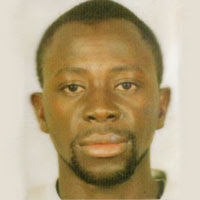Press freedom as an indicator of political pluralism
Mafugi Ceesay
A major vehicle for the expression of diverse views,
passions and ideas in a given society is the media. In order to be politically
active, citizens require means to communicate with one another and to debate
the type of government they desire for themselves.
The most important forum where civic discourse can take
place is the media, both print and electronic; there is a correlation between a
vibrant and strong civic society and a thriving media.
Most government in Africa has systematically engaged in media
gagging. Some used the media as a vehicle for state propaganda.
In an effort to protect and promote the media in Africa,
African heads of state through various protocols like the African Union have
committed themselves to promote freedom of expression and to encourage the
establishment of independent media outlets in their respective countries.
In that note I therefore called on the Gambia government to
give chance to the illiterate people to be part of the development of this
country and grand them to decide their fate in given back the life that belong
to Taranga FM, The Daily news, and The Standard Newspaper respectively.
I believe the media play a key role in helping these three
sectors of every government: Student Union, Workers Union, and local society as
a whole, perhaps the media did not serve as driven force but rather serve as a
mind set to all these areas, which the governments in Africa set to control the
media in other to cage all and sundry for their own selfish theme.
I believe the situation must change under Jammeh.
Independent national news sources should be encouraged and supported.
The new constitution should reaffirm the commitment to free
expression, this time with no qualifying restrictions. News laws facilitated
and even financially assisted emerging independent papers.
It should guarantee and safeguard the interest of the
journalists in the public sector establishing independent papers.
Limitations on the
international press should be lifted, resulting in a mass proliferation of news
periodical and television programmes presenting an independent position to a
nation accustomed to getting only one side of the picture.
However, the GRTS I, believe should serve as the eye and the
mouth piece of The Gambian Populace but instead remains to be mouth piece and
praise singers of the ruling party with leaving the general populace with no
interest of watching.
Unfortunately, the freedom of the press should not be as the
word of a mouth and short-lived, as the country constitution states that free
expression is not absolute, where are we heading to.
As part of the military crackdown following the July 1994
coup, the news media was restricted once again. A limited number of newspapers
and broadcasts continue to operate, but journalists were brought in by the
hundreds and detained for interrogation. The clear manifestation to that are
our living mirrors, the late “Deyda Hydara, and the disappearing “Kabou Nyancho”
“Chief Ebrima Manneh”, which Musa Saidykhan and cohorts were inhumanly torture.
Most papers in this country dependent for their income on
revenue from advertising cost paid by parastatal or state institutions.
The government still evokes the penal code and would stop
advertising, stop publication of media houses as punishment, as we have witness
Citizen FM, Taranga and Citizen Newspaper among others in connection best known
to them, newspapers that print articles or editorials opinions challenging the
president or administration are term as mouth piece of the opposition parties.
Recently Jammeh’s meeting with the media chief ends
fruitless as he declare that any government officials who resist interview with
journalist should be documented, signed by both parties and have it sent to his
office.
Despite all that the government officials’ remains strong
headed than the rock that grows from concrete, they still maintain that they
don’t have permission from their bosses.
Who is that boss Mr. President?
The Gambia Radio and Television service becomes the
mouthpiece of the government of the day whereas most of their news broadcasts
are limited to international events and offered little domestic news other than
accounts of visiting foreign delegations and outlines of government’s general
agenda.

Comments
Post a Comment